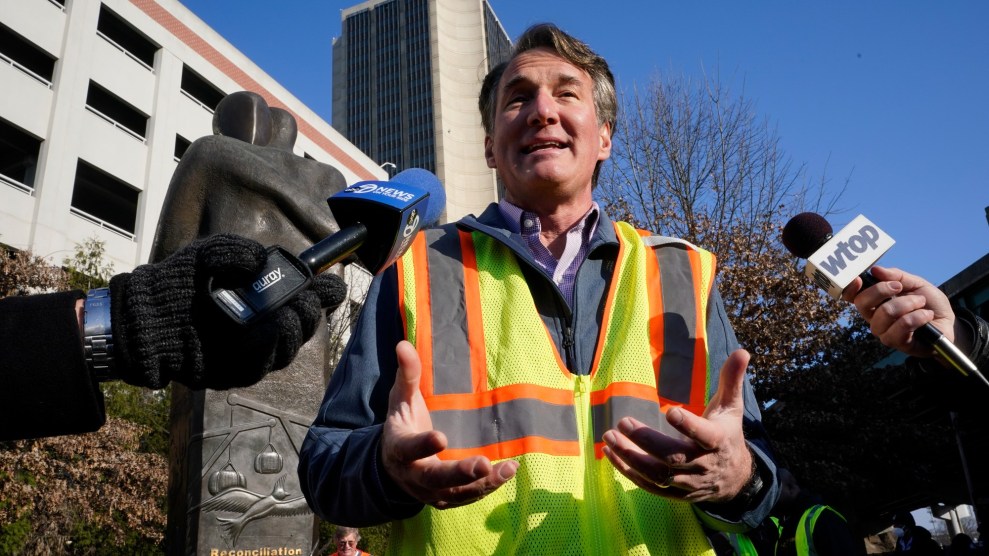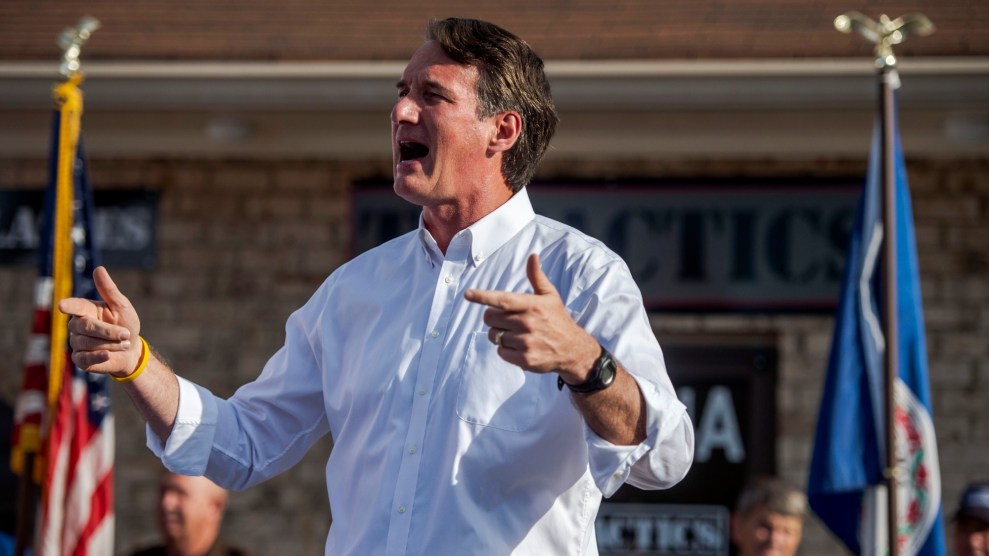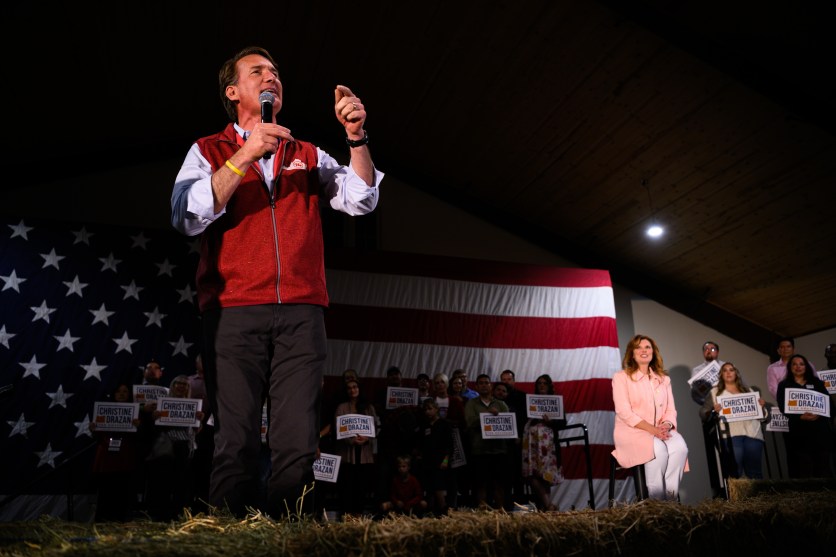
Steve Helber/ AP
Large swaths of the United States are buried under a blanket of smoke, with some states facing the worst air pollution in decades. Virginia is no exception; state officials have warned that the air quality is too hazardous for prolonged public exposure in certain regions.
But while Virginians breathe in toxic wildfire smoke this week, state regulators appear more concerned with helping Gov. Glenn Youngkin’s plans to exit a coalition largely credited for incentivizing utility companies to cut carbon emissions. On Wednesday, in a 4-3 vote, the state’s Air Quality Control Board approved the governor’s plan to remove Virginia from the Regional Greenhouse Gas Initiative, an 11-state coalition environmentalists have praised as an effective, low-cost tactic to fight climate change.
Virginia joined the group in 2020, becoming the first southern state to participate in the program that creates mandatory caps on carbon emissions from power plants. Power sector companies are also required to receive allowances for every short ton of carbon dioxide they emit, money that, in turn, is used to fund energy-efficient initiatives.
Since coming into office, Youngkin has made it a priority to remove the state from the RGGI, claiming that the program is an unfair tax on residents and businesses that doesn’t help the environment. But environmentalists say otherwise. During Wednesday’s hearing, the Southern Environmental Law Center cited recent EPA data that showed Virginia’s carbon emissions from power plants declined by about 5.5 million tons a year or 16.8 percent since 2020.

















